April 2022 FloridAgriculture eNewsletter
 By J. Scott Angle
By J. Scott Angle
[email protected]
@IFAS_VP
When Judi Whitson became the Hillsborough County Farm Bureau executive director in 1991, she was told, she remembers, “to get in touch with Jemy Hinton and make something happen.”
Whitson and Hinton, the UF/IFAS Extension Hillsborough County 4-H agent at the time, and others made Ag-Venture happen. Whitson lost count at about 200,000 on how many children have learned about Florida agriculture through the program.
Judi worked with public school educators to write the curriculum for the Ag-Abilities program, designed to teach students with disabilities about agriculture and prepare them for careers in the industry. 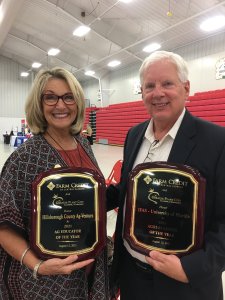
Whitson retires on April 29, leaving a legacy as one of the state’s premier agriculture educators over the past three decades. I feel fortunate to have met Whitson on a couple of my many visits to Hillsborough County and gained an appreciation for what a giant in the industry she has been: Florida Ag Woman of the Year in 2016, the ag educator of the year award from the Greater Plant City Chamber of Commerce in 2021, a public service award from Florida Strawberry Growers Association, an honorary degree from the Hillsborough County FFA Federation.
She has also supported agriculture by supporting UF/IFAS as a collaborator on education programs and a member of the advisory board for UF/IFAS Extension Hillsborough County. In a way, she helped launch the career of the county Extension director.
It was on a road trip to a conference in the 1990s with her friend Belinda McQuillen, that Whitson mentioned that the county was looking for an agriculture economic development director. McQuillen quickly responded that she knew just the guy for the job, her then-boyfriend Stephen Gran.
Gran got the job and served in it for 14 years. He became the UF/IFAS Extension Hillsborough County director in 2012. Incidentally, he got the girl, too: Stephen and Belinda married in 1998.
When you are connected to Whitson, you are connected to a vast community of Florida agriculturalists. She served all needs for the Hillsborough County Farm Bureau board, but she clearly had a passion for one area in particular.
“I educate third-graders and legislators,” she says. I’ll let you fill in the punchline there.
Third-graders she reached through Ag-Venture, a three-hour-long battery of educational stations set up at the Florida State Fairgrounds. The Florida Farm Bureau, UF/IFAS Extension, and the Florida State Fair set up a total of 15 stations where students learned about soil, insects, plants and cows.
More importantly, they learned about where their food comes from. Whitson tells a story about a moment when a tantrum taught her what happens when a child’s understanding of the food supply fails to go beyond the fridge or the school cafeteria.
Whitson was in a grocery store, and an extended power outage had left the produce section depleted. When a boy realized that he would not be going home with his favorite fruit, he threw himself on the floor in a fit of frustration.
That’s the hard way to learn about your food supply, Whitson thought, and it reminded her of how important her work in classrooms and the state fairgrounds was.
As for legislators, she educated them through farm tours, visits to the Capitol and frequent phone calls. Hinton recalls looking over at Whitson during meetings and seeing her texting county commissioners and state legislators.
Whitson says the job she bequeaths to Kaylee Poppell is even more challenging now. Each succeeding generation—and Whitson’s been through a couple—is further removed from a direct connection to a farm. Ag-Venture is more needed than ever, she said, but it’s not enough.
That’s why for the past two years she’s tried to introduce agriculture into the classroom curriculum. Whitson at first pushed for legislation that would put a nine-week agriculture curriculum into all of the state’s fourth-grade classrooms that would explore the world of agriculture through math, art, English and even physical education.
But even Whitson can’t make things happen in Tallahassee overnight. The legislators want to see it in action before they introduce a new curriculum statewide, so Whitson says a pilot project will soon start in select public schools.
It’s the logical culmination of her profession and passion. It will, at least in a few schools, educate fourth-graders and legislators.
J. Scott Angle is the University of Florida’s Senior Vice President for Agriculture and Natural Resources and leader of the UF Institute of Food and Agricultural Sciences (UF/IFAS).
 The Volusia County Young Farmers & Ranchers (YF&R) Committee hosted their inaugural Taste of Volusia event on March 10 at the Volusia County Fairgrounds.
The Volusia County Young Farmers & Ranchers (YF&R) Committee hosted their inaugural Taste of Volusia event on March 10 at the Volusia County Fairgrounds. 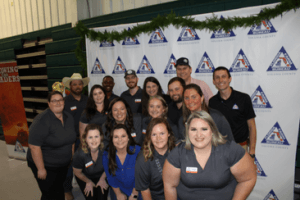

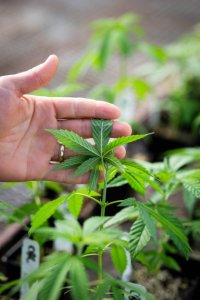 UF/IFAS assistant agronomy professor Zachary Brym leads a new initiative to promote a better understanding of hemp production. Host of the UF/IFAS Perspective from the Hemp Industry blog series, Brym hopes to shed light on the benefits of hemp production and the diverse uses of the harvested product. Growers, breeders and even physicians are just a few of the guests featured in the blog series.
UF/IFAS assistant agronomy professor Zachary Brym leads a new initiative to promote a better understanding of hemp production. Host of the UF/IFAS Perspective from the Hemp Industry blog series, Brym hopes to shed light on the benefits of hemp production and the diverse uses of the harvested product. Growers, breeders and even physicians are just a few of the guests featured in the blog series.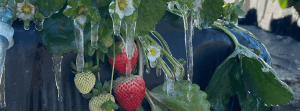 Florida citrus and fruit growers wishing to apply for crop insurance coverage for the 2022 crop year should do so by April 15, 2022.
Florida citrus and fruit growers wishing to apply for crop insurance coverage for the 2022 crop year should do so by April 15, 2022. By J. Scott Angle
By J. Scott Angle
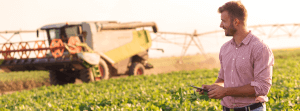 The University of Florida is working on a USDA-funded Best Management Practices (BMP) labeling study to determine if a product labeling program would prompt growers to consider adopting BMPs in their production program.
The University of Florida is working on a USDA-funded Best Management Practices (BMP) labeling study to determine if a product labeling program would prompt growers to consider adopting BMPs in their production program. 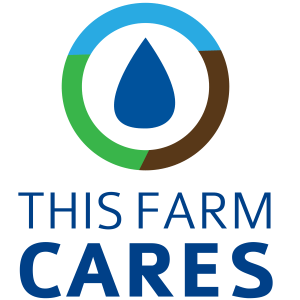 Nominations for the 2022 CARES award are open until May 15, 2022. Florida Farm Bureau has implemented a new nomination process for its County Alliance for Responsible Environmental Stewardship (CARES) program. For more than two decades, the CARES program has recognized farmers and ranchers who demonstrate exemplary environmental stewardship to protect Florida’s natural resources.
Nominations for the 2022 CARES award are open until May 15, 2022. Florida Farm Bureau has implemented a new nomination process for its County Alliance for Responsible Environmental Stewardship (CARES) program. For more than two decades, the CARES program has recognized farmers and ranchers who demonstrate exemplary environmental stewardship to protect Florida’s natural resources. 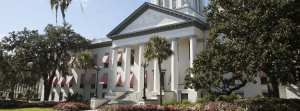
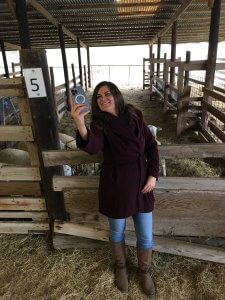
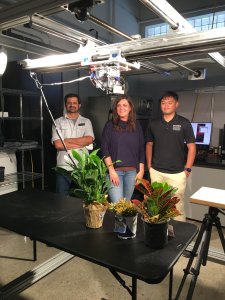 When she shares our stories, our voices get amplified before new audiences. I invited her to campus recently to thank her for reaching people that I’m not reaching.
When she shares our stories, our voices get amplified before new audiences. I invited her to campus recently to thank her for reaching people that I’m not reaching.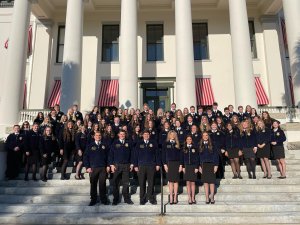
 Florida women representing 16 county Farm Bureaus will receive the Women’s Activity Award Thursday, March 24, at the Florida Farm Bureau Women’s Leadership Conference Awards Banquet from 5:30 – 7:30 p.m. at the
Florida women representing 16 county Farm Bureaus will receive the Women’s Activity Award Thursday, March 24, at the Florida Farm Bureau Women’s Leadership Conference Awards Banquet from 5:30 – 7:30 p.m. at the